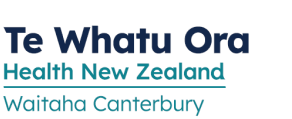What does it do?
Metolazone is used to reduce excess fluid in your body caused by heart, liver or kidney problems.
Before you start
- Tell your doctor if you have kidney problems, or gout.
- Tell your doctor if you are pregnant, planning to become pregnant, or breastfeeding.
How should you take it?
Take metolazone regularly as directed with a glass of water. You can take it with or without food.
What if you forget a dose?
If it is nearly time for your next dose, skip the missed dose and take your next dose at the usual time. Otherwise, take the missed dose as soon as you remember. Do not take two doses at the same time.
Can you take other medicines?
Some medicines available without a prescription may react with metolazone including:
- anti-inflammatories, such as diclofenac (e.g. Voltaren®), ibuprofen (e.g. Nurofen®), or aspirin (e.g. Disprin®, in doses used for pain relief). These can also be found in some cold and flu medicines (e.g. Nurofen Cold and Flu®).
- calcium supplements (e.g. Calci-Tab®)
Tell your pharmacist or doctor about all medicines or treatments that you may be taking, including vitamins, herbal products or recreational drugs.
What side effects might you notice?
| Side Effects | Recommended action |
|---|---|
|
Changes in heartbeat, muscle cramps or weakness Confusion or drowsiness (may be signs of low sodium) Changes in vision |
Tell your doctor |
|
More sensitive to sunlight (sunburn or rash) Gout attack Trouble getting or keeping an erection |
Tell your doctor if troublesome |
|
Symptoms of low blood pressure such as dizziness or fainting |
Stand up slowly. If it continues, or is severe, tell your doctor |
If you notice any other effects, discuss them with your doctor or pharmacist.
Other information:
- Protect yourself from too much sunlight while being treated with metolazone. Always cover up and apply a thick layer of broad spectrum sunscreen (at least SPF 30) when outside. Do not use sunbeds.
- You may need blood tests while taking metolazone to check the amount of potassium and sodium in your blood, and to see how well your kidneys are working.
- Metolazone is not registered for use in New Zealand. Discuss with your doctor.
This leaflet contains important, but not all, information about this medicine.
Prepared by the MyMedicines Committee at Christchurch Hospital, Te Whatu Ora - Waitaha, New Zealand. March 2023
For more general information about this sheet and its contents, see: What does a My Medicines sheet cover?
Te Reo Māori
Te Reo Māori information sheets supported by Health Quality and Safety Commission New Zealand
Web links for this sheet in different formats
Click on buttons to copy web addresses for this leaflet:
If your browser does not automatically copy these links use its copy command instead.
About My Medicines
My Medicines Patient Information Leaflets (PILs) contain important, but not all, information about the medicines they describe.
For more information about the sheets, see: What does a My Medicines sheet cover?
My Medicines is developed by a team at Te Whatu Ora – Waitaha. Our team is made up of doctors, pharmacists, and a non-medical person to help us keep to plain language. We also discuss our information with specialist health professionals or groups when needed

